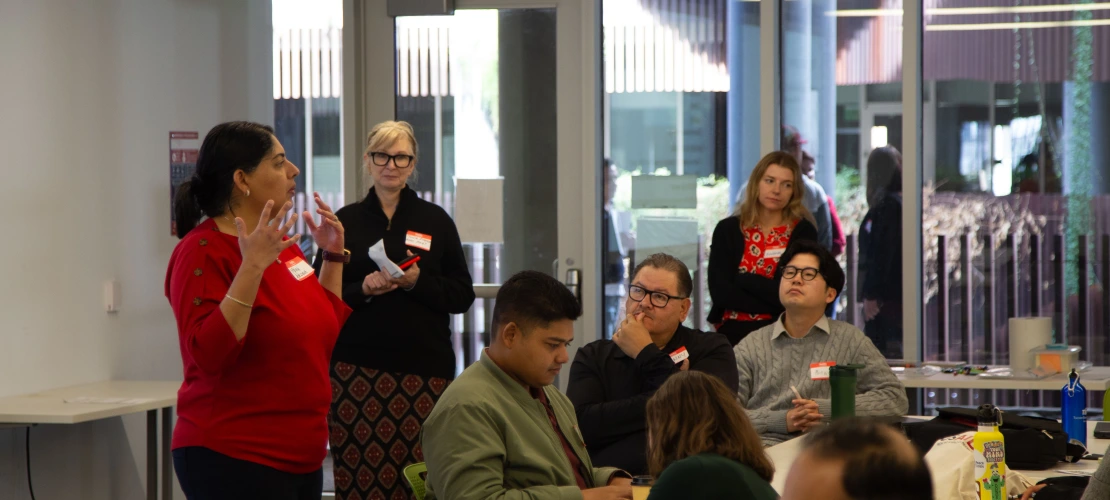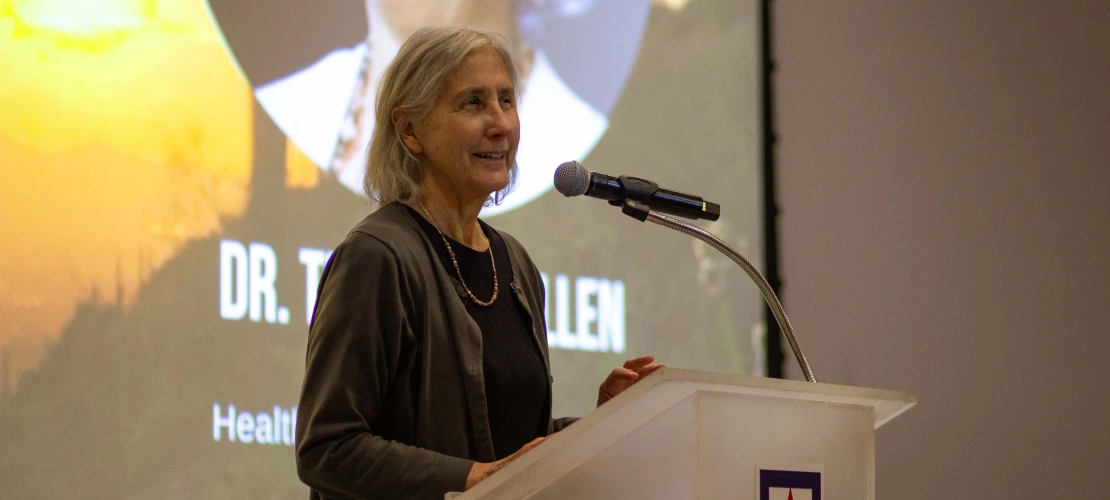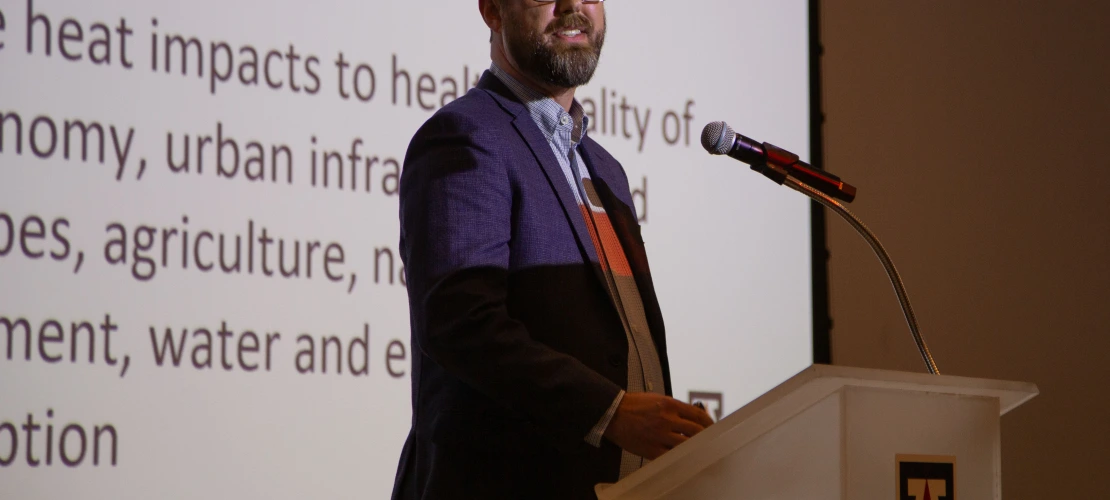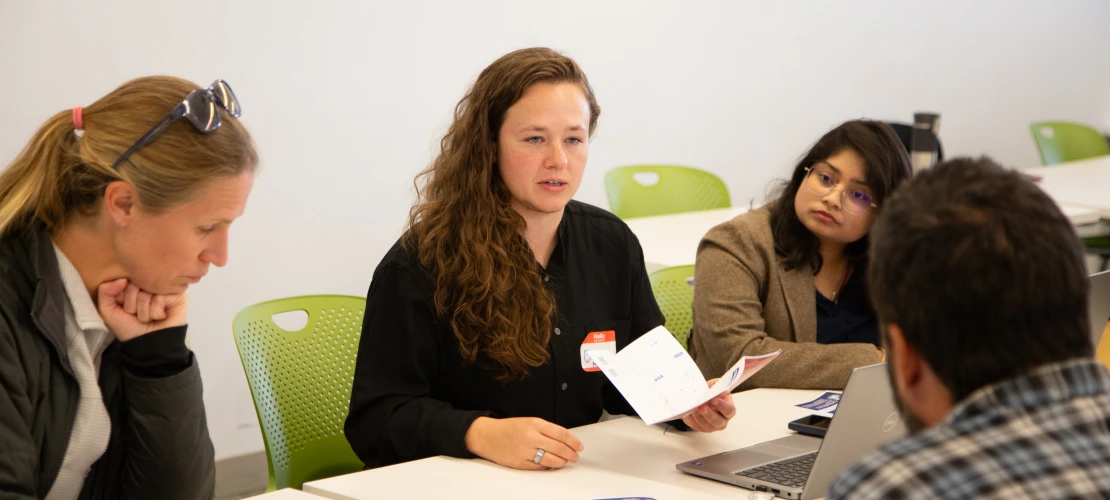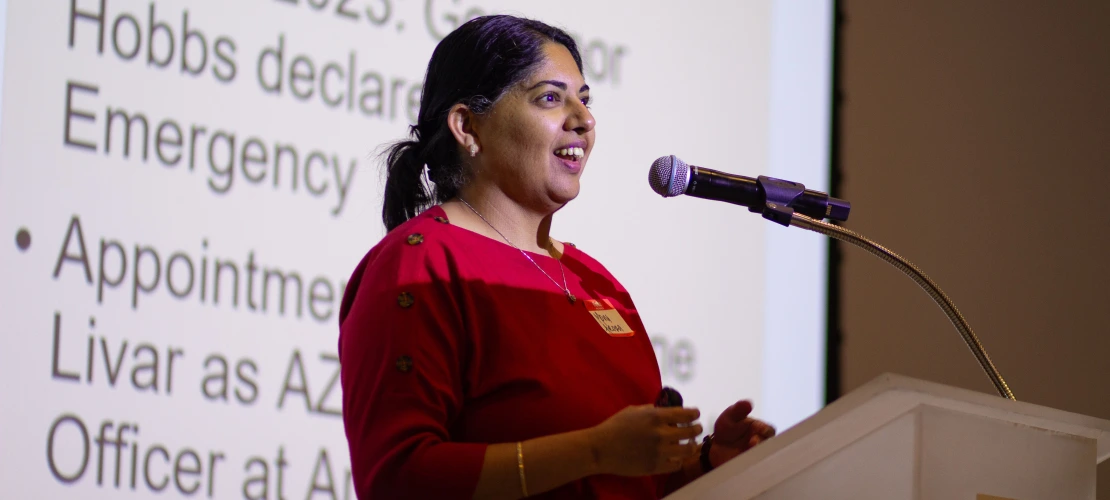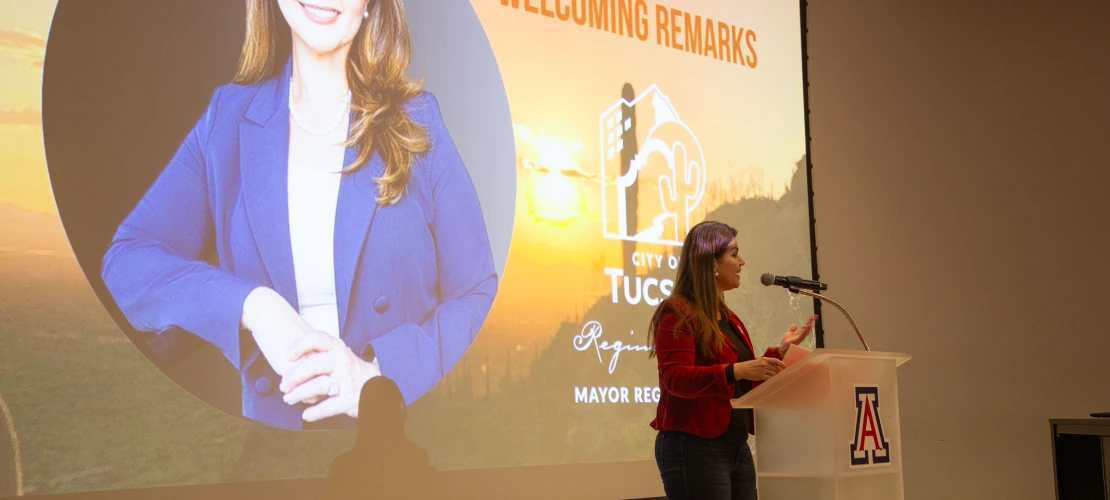2025 Southern Arizona Heat Summit
Hosted February 1, 2025 at U of A Environment & Natural Resources Building
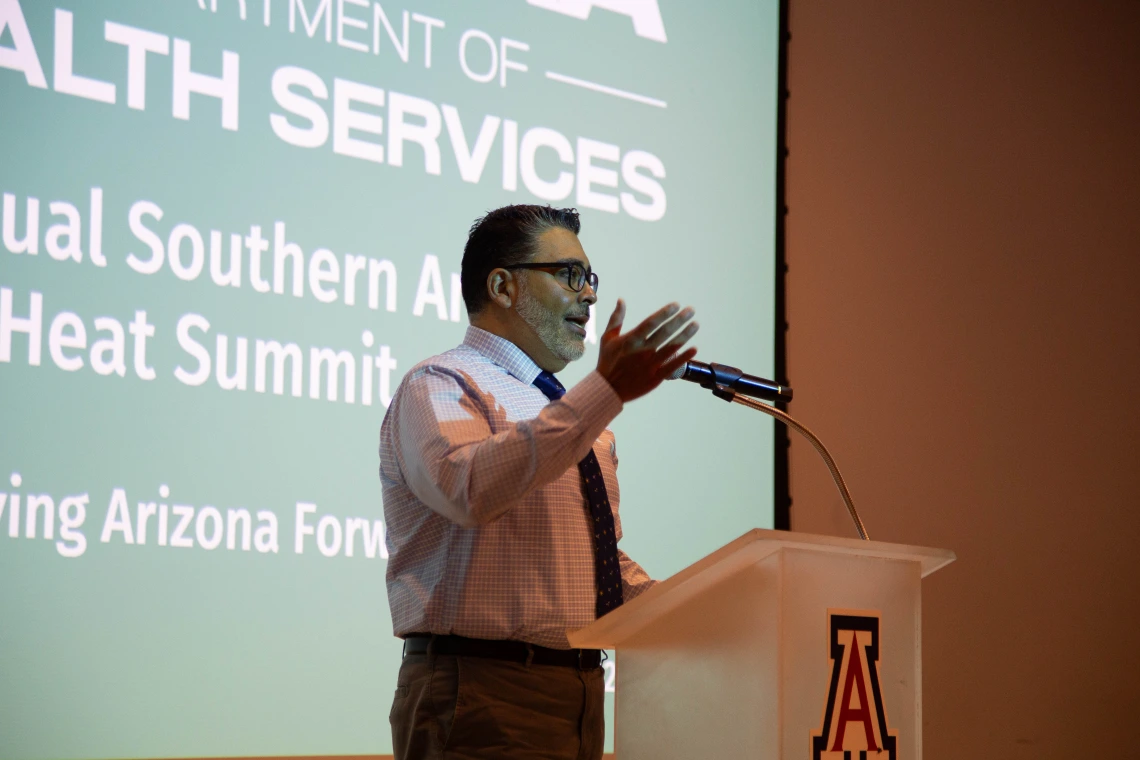
Dr. Eugene Livar, Arizona Chief Heat Officer
Ann Garn, University of Arizona Center for Rural Health
Extreme heat is a familiar feeling in Arizona’s desert and planning for the summer months is an important and critical public health effort to maintain safe communities. The University of Arizona’s Southwest Center on Resilience for Climate Change and Health (SCORCH) and Arizona Institute for Resilience (AIR) joined the City of Tucson, Pima County, and other community members, leaders, and experts for a daylong workshop to address extreme heat in southern Arizona communities. The event, hosted at the University of Arizona’s Environment & Natural Resources (ENR2) building, included a series of presentations via plenary sessions and smaller breakout groups throughout the day with topics focused on heat preparedness in southern Arizona communities. Breakout sessions explored the built environment (resilience hubs), energy and the grid, public health and healthcare, community and neighborhood level action, and workforce and heat protection.
The Public Health and Healthcare breakout session, led by SCORCH and the Pima County Health Department (PCHD), focused on examining the impact of extreme heat on communities and identifying partnerships and solutions to enhance resilience. Discussions emphasized the importance of improving communication strategies, strengthening local partnerships, and expanding public health infrastructure to address the increasing risks associated with rising temperatures. Participants in this session represented government agencies, public health organizations, emergency response groups, climate and environmental experts, advocacy groups, and community-based nonprofits. The morning breakout centered on refining heat related communication materials in which participants were invited to provide feedback on strategies to improve materials and outreach efforts. The interactive afternoon breakout engaged participants in scenario-based planning to assess community readiness and available heat response resources. Participants discussed key elements of emergency preparedness, evaluated existing services, and identified gaps in resources needed to protect at-risk populations. A handful of enthusiastic MEZCOPH graduate students assisted facilitators for these interactive sessions; special thanks to Kendra Martinez, Imran Mithu, Elaina Richards, and Royani Saha.
The afternoon plenary session featured a series of presentations during which SCORCH Co-Investigator Dr. Mona Arora, Assistant Research Professor, MEZCOPH, highlighted the heightened risks associated with certain medications during extreme heat events. Her presentation emphasized the need for greater awareness among healthcare professionals and the public regarding the ways in which a number of prescription and over-the-counter medications can impair heat regulation. She shared information about the newly formed Heat and Medications Taskforce and the efforts that are underway to enhance education and develop community outreach programs to protect vulnerable populations from heat-related health complications. (See Heat and Medication Information Sheet for Health Care Providers developed by the taskforce).
SCORCH Community Advisory Board members also presenting during plenary sessions included Fatima Luna, Chief Resilience Officer for the City of Tucson, City of Tucson Mayor Regina Romero, Dr. Theresa Cullen, PCHD Director, and Tom Dang, Science and Operations Officer for the NOAA National Weather Service Tucson. SCORCH faculty member Dr. Ladd Keith, Associate Professor of Planning and Sustainable Built Environments Faculty Research Associate, Udall Center for Studies in Public Policy, also provided opening remarks during the morning plenary session in which he shared his expertise in extreme heat governance.
To learn more about the 2025 Southern Arizona Heat Summit, please see the report prepared for and submitted to Governor Katie Hobbs and the Arizona Department of Health Services (ADHS).


